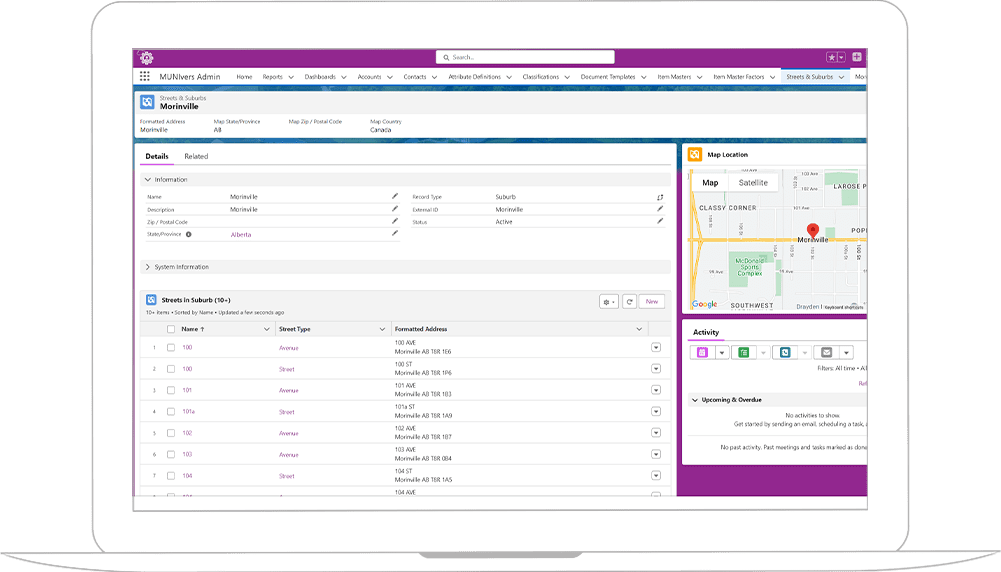This Website collects some Personal Data from its Users. Users may be subject to different protection standards and broader standards may therefore apply to some. Users can contact the Owner, to learn more about such standards. This document can be printed for reference by using the print command in the settings of any browser.
Personal Data processed for the following purposes and using the following services:
Analytics
-
- Google Analytics and HubSpot Analytics
- Personal Data: Cookies; Usage Data
Contacting the User
-
- Contact form
- Personal Data: company name; email address; first name; last name; number of employees; phone number
Data transfer outside the EU
-
- Data transfer abroad based on consent, Data transfer abroad based on standard contractual clauses, Data transfer from the EU and/or Switzerland to the U.S based on Privacy Shield and Data transfer to countries that guarantee European standards
- Personal Data: various types of Data
Displaying content from external platforms
-
- YouTube video widget
- Personal Data: Cookies; Usage Data
- Google Forms
- Personal Data: Usage Data; various types of Data as specified in the privacy policy of the service
Hosting and backend infrastructure
-
- Amazon Web Services (AWS)
- Personal Data: various types of Data as specified in the privacy policy of the service
Interaction with external social networks and platforms
-
- Facebook Like button and social widgets, LinkedIn button and social widgets and Twitter Tweet button and social widgets
- Personal Data: Cookies; Usage Data
Managing contacts and sending messages
-
- HubSpot Email
- Personal Data: email address; Usage Data
Managing landing and invitation pages
-
- Unbounce
- Personal Data: Cookies; email address; Usage Data
Remarketing and behavioral targeting
-
- Remarketing with Google Analytics
- Personal Data: Cookies; Usage Data
SPAM protection
-
- Google reCAPTCHA
- Personal Data: Cookies; Usage Data
Tag Management
-
- Google Tag Manager
- Personal Data: Usage Data
User database management
-
- HubSpot Lead Management and Salesforce Sales Cloud
- Personal Data: various types of Data as specified in the privacy policy of the service
- HubSpot CRM
- Personal Data: email address; phone number; various types of Data as specified in the privacy policy of the service
Information on opting out of interest-based advertising
In addition to any opt-out feature provided by any of the services listed in this document, Users may learn more on how to generally opt out of interest-based advertising within the dedicated section of the Cookie Policy.
Further information about the processing of Personal Data
-
The Service is not directed to children under the age of 13
Users declare themselves to be adult according to their applicable legislation. Minors may use this Website only with the assistance of a parent or guardian. Under no circumstance persons under the age of 13 may use this Website.
Contact information
-
Owner and Data Controller
Website Owner
Agilyx Pty Ltd
Level 17, 99 Mount St
Sydney, Australia
Owner contact email: operations@agilyxgroup.com
Full policy
Owner and Data Controller
Website Owner
Agilyx Pty Ltd
Level 17, 99 Mount St
Sydney, Australia
Owner contact email: operations@agilyxgroup.com
Types of Data collected
Among the types of Personal Data that this Website collects, by itself or through third parties, there are: first name; last name; phone number; email address; company name; number of employees; Cookies; Usage Data; various types of Data.
Complete details on each type of Personal Data collected are provided in the dedicated sections of this privacy policy or by specific explanation texts displayed prior to the Data collection.
Personal Data may be freely provided by the User, or, in case of Usage Data, collected automatically when using this Website.
Unless specified otherwise, all Data requested by this Website is mandatory and failure to provide this Data may make it impossible for this Website to provide its services. In cases where this Website specifically states that some Data is not mandatory, Users are free not to communicate this Data without consequences to the availability or the functioning of the Service.
Users who are uncertain about which Personal Data is mandatory are welcome to contact the Owner.
Any use of Cookies – or of other tracking tools — by this Website or by the owners of third-party services used by this Website serves the purpose of providing the Service required by the User, in addition to any other purposes described in the present document and in the Cookie Policy.
Users are responsible for any third-party Personal Data obtained, published or shared through this Website.
Mode and place of processing the Data
Methods of processing
The Owner takes appropriate security measures to prevent unauthorized access, disclosure, modification, or unauthorized destruction of the Data.
The Data processing is carried out using computers and/or IT enabled tools, following organizational procedures and modes strictly related to the purposes indicated. In addition to the Owner, in some cases, the Data may be accessible to certain types of persons in charge, involved with the operation of this Website (administration, sales, marketing, legal, system administration) or external parties (such as third-party technical service providers, mail carriers, hosting providers, IT companies, communications agencies) appointed, if necessary, as Data Processors by the Owner. The updated list of these parties may be requested from the Owner at any time.
Place
The Data is processed at the Owner’s operating offices and in any other places where the parties involved in the processing are located.
Depending on the User’s location, data transfers may involve transferring the User’s Data to a country other than their own. To find out more about the place of processing of such transferred Data, Users can check the section containing details about the processing of Personal Data.
Retention time
Unless specified otherwise in this document, Personal Data shall be processed and stored for as long as required by the purpose they have been collected for and may be retained for longer due to applicable legal obligation or based on the Users’ consent.
The purposes of processing
The Data concerning the User is collected to allow the Owner to provide its Service, comply with its legal obligations, respond to enforcement requests, protect its rights and interests (or those of its Users or third parties), detect any malicious or fraudulent activity, as well as the following: Hosting and backend infrastructure, Contacting the User, Analytics, SPAM protection, Remarketing and behavioral targeting, Displaying content from external platforms, Data transfer outside the EU, Interaction with external social networks and platforms, User database management, Managing contacts and sending messages, Managing landing and invitation pages and Tag Management.
For specific information about the Personal Data used for each purpose, the User may refer to the section “Detailed information on the processing of Personal Data”.
Detailed information on the processing of Personal Data
Personal Data is collected for the following purposes and using the following services:
The services contained in this section enable the Owner to monitor and analyze web traffic and can be used to keep track of User behavior.
Google Analytics (Google Inc.)
Google Analytics is a web analysis service provided by Google Inc. (“Google”). Google utilizes the Data collected to track and examine the use of this Website, to prepare reports on its activities and share them with other Google services.
Google may use the Data collected to contextualize and personalize the ads of its own advertising network.
Personal Data processed: Cookies; Usage Data.
Place of processing: US – Privacy Policy – Opt Out.
HubSpot Analytics (HubSpot, Inc.)
HubSpot Analytics is an analytics service provided by HubSpot, Inc.
Personal Data processed: Cookies; Usage Data.
Place of processing: United States – Privacy Policy – Opt Out .
Contact form (this Website)
By filling in the contact form with their Data, the User authorizes this Website to use these details to reply to requests for information, quotes or any other kind of request as indicated by the form’s header.
Personal Data processed: company name; email address; first name; last name; number of employees; phone number.
- Data transfer outside the EU
The Owner is allowed to transfer Personal Data collected within the EU to third countries (i.e. any country not part of the EU) only pursuant to a specific legal basis. Any such Data transfer is based on one of the legal bases described below.
Users can inquire with the Owner to learn which legal basis applies to which specific service.
Data transfer abroad based on consent (this Website)
If this is the legal basis, Personal Data of Users shall be transferred from the EU to third countries only if the User has explicitly consented to such transfer, after having been informed of the possible risks due to the absence of an adequacy decision and appropriate safeguards.
In such cases, the Owner shall inform Users appropriately and collect their explicit consent via this Website.
Personal Data processed: various types of Data.
Data transfer abroad based on standard contractual clauses (this Website)
If this is the legal basis, the transfer of Personal Data from the EU to third countries is carried out by the Owner according to “standard contractual clauses” provided by the European Commission.
This means that Data recipients have committed to process Personal Data in compliance with the data protection standards set forth by EU data protection legislation. For further information, Users are requested to contact the Owner through the contact details provided in the present document.
Personal Data processed: various types of Data.
Data transfer from the EU and/or Switzerland to the U.S based on Privacy Shield (this Website)
If this is the legal basis, the transfer of Personal Data from the EU or Switzerland to the US is carried out according to the EU – U.S. and Swiss – U.S. Privacy Shield.
In particular, Personal Data is transferred to services that self-certify under the Privacy Shield framework and therefore guarantee an adequate level of protection of such transferred Data. All services are listed within the relevant section of this document and those that adhere to Privacy Shield can be singled out by checking their privacy policy and possibly also by specifically checking for Privacy Shield adherence in the official Privacy Shield List. Privacy Shield also specifically guarantees rights to Users which can be found in its most current form on the website run by the US Department of Commerce.
Personal Data may be transferred from within the EU or Switzerland to the U.S. to services that are not, or not anymore, part of Privacy Shield, only based on other valid legal grounds. Users can ask the Owner to learn about such legal grounds.
Personal Data processed: various types of Data.
Data transfer to countries that guarantee European standards (this Website)
If this is the legal basis, the transfer of Personal Data from the EU to third countries is carried out according to an adequacy decision of the European Commission.
The European Commission adopts adequacy decisions for specific countries whenever it considers that country to possess and provide Personal Data protection standards comparable to those set forth by EU data protection legislation. Users can find an updated list of all adequacy decisions issued on the European Commission’s website.
Personal Data processed: various types of Data.
- Displaying content from external platforms
This type of service allows you to view content hosted on external platforms directly from the pages of this Website and interact with them.
This type of service might still collect web traffic data for the pages where the service is installed, even when Users do not use it.
YouTube video widget (Google Inc.)
YouTube is a video content visualization service provided by Google Inc. that allows this Website to incorporate content of this kind on its pages.
Personal Data processed: Cookies; Usage Data.
Place of processing: US – Privacy Policy.
Google Fonts (Google Inc.)
Google Fonts is a typeface visualization service provided by Google LLC or by Google Ireland Limited, depending on how the Owner manages the Data processing, that allows this Website to incorporate content of this kind on its pages.
Personal Data processed: Usage Data; various types of Data as specified in the privacy policy of the service.
Place of processing: US – Privacy Policy.
- Hosting and backend infrastructure
This type of service has the purpose of hosting Data and files that enable this Website to run and be distributed as well as to provide a ready-made infrastructure to run specific features or parts of this Website. Some of these services work through geographically distributed servers, making it difficult to determine the actual location where the Personal Data are stored.
Amazon Web Services (AWS) (Amazon)
Amazon Web Services (AWS) is a hosting and backend service provided by Amazon Web Services, Inc.
Personal Data processed: various types of Data as specified in the privacy policy of the service.
Place of processing: See the Amazon privacy policy – Privacy Policy.
- Interaction with external social networks and platforms
This type of service allows interaction with social networks or other external platforms directly from the pages of this Website.
The interaction and information obtained through this Website are always subject to the User’s privacy settings for each social network.
This type of service might still collect traffic data for the pages where the service is installed, even when Users do not use it.
It is recommended to log out from the respective services in order to make sure that the processed data on this Website isn’t being connected back to the User’s profile.
Facebook Like button and social widgets (Facebook, Inc.)
The Facebook Like button and social widgets are services allowing interaction with the Facebook social network provided by Facebook, Inc.
Personal Data processed: Cookies; Usage Data.
Place of processing: United States – Privacy Policy.
LinkedIn button and social widgets (LinkedIn Corporation)
The LinkedIn button and social widgets are services allowing interaction with the LinkedIn social network provided by LinkedIn Corporation.
Personal Data processed: Cookies; Usage Data.
Place of processing: United States – Privacy Policy.
Twitter Tweet button and social widgets (X Corp.)
The Twitter Tweet button and social widgets are services allowing interaction with the Twitter social network provided by Twitter, Inc.
Personal Data processed: Cookies; Usage Data.
Place of processing: United States – Privacy Policy.
- Managing contacts and sending messages
This type of service makes it possible to manage a database of email contacts, phone contacts or any other contact information to communicate with the User.
These services may also collect data concerning the date and time when the message was viewed by the User, as well as when the User interacted with it, such as by clicking on links included in the message.
HubSpot Email (HubSpot, Inc.)
HubSpot Email is an email address management and message sending service provided by HubSpot, Inc.
Personal Data processed: email address; Usage Data.
Place of processing: United States – Privacy Policy.
- Managing landing and invitation pages
This type of service helps with building and managing landing and invitation pages, i.e., pages for presenting a product or service, where you may add your contact information such as an email address.
Managing these pages means that these services will handle the Personal Data collected through the pages, including Usage Data.
Unbounce (Unbounce Marketing Solutions Inc.)
Unbounce is a landing page management service provided by Unbounce Marketing Solutions Inc., that allows this Website to collect the email addresses of Users interested in its service.
Unbounce allows the Owner to track and analyze the User response concerning web traffic or behavior regarding changes to the structure, text or any other component of the created landing pages.
Personal Data processed: Cookies; email address; Usage Data.
Place of processing: Canada – Privacy Policy.
- Remarketing and behavioral targeting
This type of service allows this Website and its partners to inform, optimize and serve advertising based on past use of this Website by the User.
This activity is facilitated by tracking Usage Data and by using Trackers to collect information which is then transferred to the partners that manage the remarketing and behavioral targeting activity.
Some services offer a remarketing option based on email address lists.
In addition to any opt-out feature provided by any of the services below, Users may opt out by visiting the Network Advertising Initiative opt-out page.
Users may also opt-out of certain advertising features through applicable device settings, such as the device advertising settings for mobile phones or ads settings in general.
Remarketing with Google Analytics (Google Inc.)
Remarketing with Google Analytics is a remarketing and behavioral targeting service provided by Google LLC or by Google Ireland Limited, depending on how the Owner manages the Data processing, that connects the tracking activity performed by Google Analytics and its Cookies with the Google Ads advertising network and the Doubleclick Cookie.
Personal Data processed: Cookies; Usage Data.
Place of processing: US – Privacy Policy – Opt Out.
This type of service analyzes the traffic of this Website, potentially containing Users’ Personal Data, with the purpose of filtering it from parts of traffic, messages and content that are recognized as SPAM.
Google reCAPTCHA (Google Inc.)
Google reCAPTCHA is a SPAM protection service provided by Google Inc.
The use of reCAPTCHA is subject to the Google privacy policy and terms of use.
Personal Data processed: Cookies; Usage Data.
Place of processing: US – Privacy Policy.
This type of service helps the Owner to manage the tags or scripts needed on this Website in a centralized fashion.
This results in the Users’ Data flowing through these services, potentially resulting in the retention of this Data.
Google Tag Manager (Google LLC)
Google Tag Manager is a tag management service provided by Google LLC.
Personal Data processed: Usage Data.
Place of processing: United States – Privacy Policy.
This type of service allows the Owner to build user profiles by starting from an email address, a personal name, or other information that the User provides to this Website, as well as to track User activities through analytics features. This Personal Data may also be matched with publicly available information about the User (such as social networks’ profiles) and used to build private profiles that the Owner can display and use for improving this Website.
Some of these services may also enable the sending of timed messages to the User, such as emails based on specific actions performed on this Website.
HubSpot Lead Management (HubSpot, Inc.)
HubSpot Lead Management is a User database management service provided by HubSpot, Inc.
Personal Data processed: various types of Data as specified in the privacy policy of the service.
Place of processing: United States – Privacy Policy.
HubSpot CRM (HubSpot, Inc.)
HubSpot CRM is a User database management service provided by HubSpot, Inc.
Personal Data processed: email address; phone number; various types of Data as specified in the privacy policy of the service.
Place of processing: United States – Privacy Policy.
Salesforce Sales Cloud (salesforce.com, inc.)
Salesforce Sales Cloud is a User database management service provided by salesforce.com, inc.
Personal Data processed: various types of Data as specified in the privacy policy of the service.
Place of processing: United States – Privacy Policy.
Information on opting out of interest-based advertising
In addition to any opt-out feature provided by any of the services listed in this document, Users may learn more on how to generally opt out of interest-based advertising within the dedicated section of the Cookie Policy.
Further information about the processing of Personal Data
- The Service is not directed to children under the age of 13
Users declare themselves to be adult according to their applicable legislation. Minors may use this Website only with the assistance of a parent or guardian. Under no circumstance persons under the age of 13 may use this Website.
Cookie Policy
This Website uses Trackers. To learn more, Users may consult the Cookie Policy.
Further Information for Users in the European Union
This section applies to all Users in the European Union, according to the General Data Protection Regulation (the “GDPR”), and, for such Users, supersedes any other possibly divergent or conflicting information contained in the privacy policy. Further details regarding the categories of Data processed, the purposes of processing, the categories of recipients of the Personal Data, if any, and further information about Personal Data can be found in the section titled “Detailed information on the processing of Personal Data” within this document.
Legal basis of processing
The Owner may process Personal Data relating to Users if one of the following applies:
- Users have given their consent for one or more specific purposes.
- provision of Data is necessary for the performance of an agreement with the User and/or for any pre-contractual obligations thereof;
- processing is necessary for compliance with a legal obligation to which the Owner is subject;
- processing is related to a task that is carried out in the public interest or in the exercise of official authority vested in the Owner;
- processing is necessary for the purposes of the legitimate interests pursued by the Owner or by a third party.
In any case, the Owner will gladly help to clarify the specific legal basis that applies to the processing, and in particular whether the provision of Personal Data is a statutory or contractual requirement, or a requirement necessary to enter into a contract.
Further information about retention time
Unless specified otherwise in this document, Personal Data shall be processed and stored for as long as required by the purpose they have been collected for and may be retained for longer due to applicable legal obligation or based on the Users’ consent.
Therefore:
- Personal Data collected for purposes related to the performance of a contract between the Owner and the User shall be retained until such contract has been fully performed.
- Personal Data collected for the purposes of the Owner’s legitimate interests shall be retained as long as needed to fulfill such purposes. Users may find specific information regarding the legitimate interests pursued by the Owner within the relevant sections of this document or by contacting the Owner.
The Owner may be allowed to retain Personal Data for a longer period whenever the User has given consent to such processing, as long as such consent is not withdrawn. Furthermore, the Owner may be obliged to retain Personal Data for a longer period whenever required to fulfil a legal obligation or upon order of an authority.
Once the retention period expires, Personal Data shall be deleted. Therefore, the right of access, the right to erasure, the right to rectification and the right to data portability cannot be enforced after expiration of the retention period.
The rights of Users based on the General Data Protection Regulation (GDPR)
Users may exercise certain rights regarding their Data processed by the Owner.
In particular, Users have the right to do the following, to the extent permitted by law:
- Withdraw their consent at any time. Users have the right to withdraw consent where they have previously given their consent to the processing of their Personal Data.
- Object to processing of their Data. Users have the right to object to the processing of their Data if the processing is carried out on a legal basis other than consent.
- Access their Data. Users have the right to learn if Data is being processed by the Owner, obtain disclosure regarding certain aspects of the processing and obtain a copy of the Data undergoing processing.
- Verify and seek rectification. Users have the right to verify the accuracy of their Data and ask for it to be updated or corrected.
- Restrict the processing of their Data. Users have the right to restrict the processing of their Data. In this case, the Owner will not process their Data for any purpose other than storing it.
- Have their Personal Data deleted or otherwise removed. Users have the right to obtain the erasure of their Data from the Owner.
- Receive their Data and have it transferred to another controller. Users have the right to receive their Data in a structured, commonly used and machine readable format and, if technically feasible, to have it transmitted to another controller without any hindrance.
- Lodge a complaint. Users have the right to bring a claim before their competent data protection authority.
Users are also entitled to learn about the legal basis for Data transfers abroad including to any international organization governed by public international law or set up by two or more countries, such as the UN, and about the security measures taken by the Owner to safeguard their Data.
Details about the right to object to processing
Where Personal Data is processed for a public interest, in the exercise of an official authority vested in the Owner or for the purposes of the legitimate interests pursued by the Owner, Users may object to such processing by providing a ground related to their particular situation to justify the objection.
Users must know that, however, should their Personal Data be processed for direct marketing purposes, they can object to that processing at any time, free of charge and without providing any justification. Where the User objects to processing for direct marketing purposes, the Personal Data will no longer be processed for such purposes. To learn whether the Owner is processing Personal Data for direct marketing purposes, Users may refer to the relevant sections of this document.
How to exercise these rights
Any requests to exercise User rights can be directed to the Owner through the contact details provided in this document. Such requests are free of charge and will be answered by the Owner as early as possible and always within one month, providing Users with the information required by law. Any rectification or erasure of Personal Data or restriction of processing will be communicated by the Owner to each recipient, if any, to whom the Personal Data has been disclosed unless this proves impossible or involves disproportionate effort. At the Users’ request, the Owner will inform them about those recipients.
Transfer of Personal Data outside of the European Union
Data transfer abroad based on consent
If this is the legal basis, Personal Data of Users shall be transferred from the EU to third countries only if the User has explicitly consented to such transfer, after having been informed of the possible risks due to the absence of an adequacy decision and appropriate safeguards.
In such cases, the Owner shall inform Users appropriately and collect their explicit consent via this Website.
Data transfer abroad based on standard contractual clauses
If this is the legal basis, the transfer of Personal Data from the EU to third countries is carried out by the Owner according to “standard contractual clauses” provided by the European Commission.
This means that Data recipients have committed to process Personal Data in compliance with the data protection standards set forth by EU data protection legislation. For further information, Users are requested to contact the Owner through the contact details provided in the present document.
Data transfer to countries that guarantee European standards
If this is the legal basis, the transfer of Personal Data from the EU to third countries is carried out according to an adequacy decision of the European Commission.
The European Commission adopts adequacy decisions for specific countries whenever it considers that country to possess and provide Personal Data protection standards comparable to those set forth by EU data protection legislation. Users can find an updated list of all adequacy decisions issued on the European Commission’s website.
Additional information about Data collection and processing
Legal action
The User’s Personal Data may be used for legal purposes by the Owner in Court or in the stages leading to possible legal action arising from improper use of this Website or the related Services.
The User declares to be aware that the Owner may be required to reveal personal data upon request of public authorities.
Additional information about User’s Personal Data
In addition to the information contained in this privacy policy, this Website may provide the User with additional and contextual information concerning particular Services or the collection and processing of Personal Data upon request.
System logs and maintenance
For operation and maintenance purposes, this Website and any third-party services may collect files that record interaction with this Website (System logs) or use other Personal Data (such as the IP Address) for this purpose.
Information not contained in this policy
More details concerning the collection or processing of Personal Data may be requested from the Owner at any time. Please see the contact information at the beginning of this document.
Changes to this privacy policy
The Owner reserves the right to make changes to this privacy policy at any time by notifying its Users on this page and possibly within this Website and/or – as far as technically and legally feasible – sending a notice to Users via any contact information available to the Owner. It is strongly recommended to check this page often, referring to the date of the last modification listed at the bottom.
Should the changes affect processing activities performed on the basis of the User’s consent, the Owner shall collect new consent from the User, where required.
Definitions and legal references
Personal Data (or Data)
Any information that directly, indirectly, or in connection with other information — including a personal identification number — allows for the identification or identifiability of a natural person.
Usage Data
Information collected automatically through this Website (or third-party services employed in this Website), which can include: the IP addresses or domain names of the computers utilized by the Users who use this Website, the URI addresses (Uniform Resource Identifier), the time of the request, the method utilized to submit the request to the server, the size of the file received in response, the numerical code indicating the status of the server’s answer (successful outcome, error, etc.), the country of origin, the features of the browser and the operating system utilized by the User, the various time details per visit (e.g., the time spent on each page within the Application) and the details about the path followed within the Application with special reference to the sequence of pages visited, and other parameters about the device operating system and/or the User’s IT environment.
User
The individual using this Website who, unless otherwise specified, coincides with the Data Subject.
Data Subject
The natural person to whom the Personal Data refers.
Data Processor (or Processor)
The natural or legal person, public authority, agency or other body which processes Personal Data on behalf of the Controller, as described in this privacy policy.
Data Controller (or Owner)
The natural or legal person, public authority, agency or other body which, alone or jointly with others, determines the purposes and means of the processing of Personal Data, including the security measures concerning the operation and use of this Website. The Data Controller, unless otherwise specified, is the Owner of this Website.
This Website (or this Application)
The means by which the Personal Data of the User is collected and processed.
Service
The service provided by this Website as described in the relative terms (if available) and on this site/application.
European Union (or EU)
Unless otherwise specified, all references made within this document to the European Union include all current member states to the European Union and the European Economic Area.
Cookie
Cookies are Trackers consisting of small sets of data stored in the User’s browser.
Tracker
Tracker indicates any technology – e.g Cookies, unique identifiers, web beacons, embedded scripts, e-tags and fingerprinting – that enables the tracking of Users, for example by accessing or storing information on the User’s device.
Legal information
This privacy policy relates solely to this Website, if not stated otherwise within this document

























